#battle of aboukir
Text
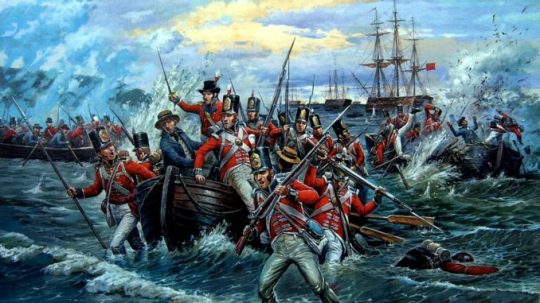
British Royal Marines disembarking from a task-force fleet in boats at Aboukir Bay 8th March 1801 – painted by Aleksandr Yezhov
55 notes
·
View notes
Text
Eugène about Sidney Smith
This is another snippet taken from Eugène de Beauharnais’s fragmented memoirs (Memoires et correspondance politique et militaire du Prince Eugène, Tome 1). In it, he mentions that while in Egypt, he crossed paths with Sidney Smith twice, both times missing him by an inch, the first time happening in Suez and the second time, related here, during the Battle of Aboukir. According to Eugène, during this battle [...]
[… t]he enemy was quickly dislodged from the advanced positions they occupied. Although I was not an artillery officer, I was nevertheless instructed by the general-in-chief to direct the first two guns we had taken from the Turks against the English boats on our left, already moving away.
[Insert sequence of a dozen clueless cavalrymen surrounding a Turkish canon.]
So, that’s where the canon ball goes in, right? And, I believe we have to light a fuse or something… Isn’t there also some kind of powder involved? Oh, Claude, maybe don’t stand directly in front of the barrel, we don’t really know what … [canon goes off] Woah! Hey, I think we almost hit something!
I noticed that one of our cannonballs fell close enough to a longboat to cover the men in it with water; and, by a singular coincidence, Commodore Sidney Smith was also among them, as he himself assured me, fifteen years later.
Which I assume to have happened during the Congress of Vienna that I understand both men attended. I can just imagine, during a nice evening dinner at the Hofburg, Eugène telling the people sitting next to him about the battle of Aboukir:
"And then Napoleon said we should fire a canon at the British boats, and we had no clue what we were doing but guess what, we still almost hit one. Don’t know who was in it but one thing I know for sure, they must have been soaking wet…"
Sidney Smith from across the table, jumping up: "Hold a second! That was you?"
#napoleon's family#eugene de beauharnais#napoleonic era#egyptian campaign#battle of aboukir#sidney smith#was reminded by this by#napoleonic sexyman tournament#egypt 1799
10 notes
·
View notes
Text
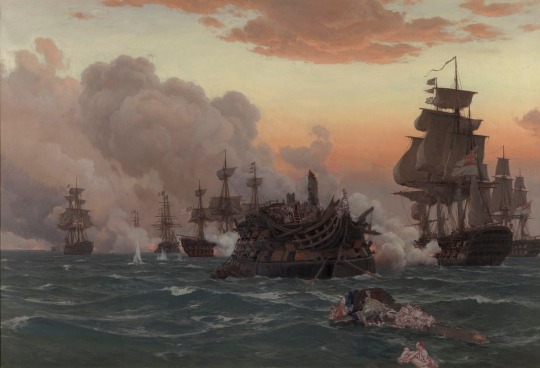
The Battle of the Nile, 1 August 1798
by Eduardo de Martino
#eduardo de martino#art#battle of the nile#horatio nelson#age of sail#mediterranean#egypt#france#england#aboukir bay#royal navy#great britain#britain#history#french revolutionary wars#ships#fleet#naval battle#naval battles#french#english#british#naval warfare#napoleonic#warship#warships
240 notes
·
View notes
Text

« Général, vous êtes grand comme le monde, mais le monde n’est pas assez grand pour vous ! »
Kleber tells Bonaparte after the Battle of Aboukir, General, you are as big as the world but the world isn't big enough for you!
wikimedia commons
18 notes
·
View notes
Text
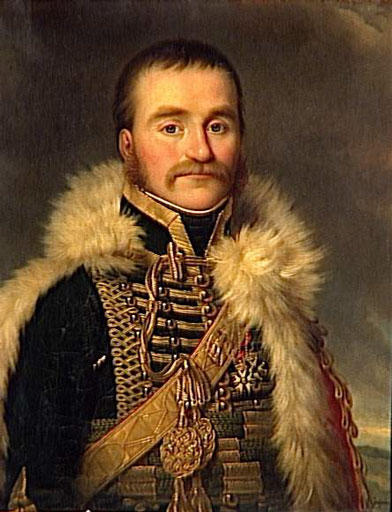
Albert Gregorius - Portrait of Nicolas Dahlman, Général de brigade - 1814
Nicolas Dahlmann (7 November 1769 – 10 February 1807) was a French cavalry general of the Napoleonic wars.
Dahlmann was born in Thionville as the son of a trumpeter and enlisted in the French Army in 1777 at the age of 8, where his father and older brother were already serving in the Regiment Dauphin Cavalerie, which later in 1791 became the 12e Régiment de Cavalerie.
Dahlmann served with the infantry and was deployed at the Armee de la Moselle and the Armee des Pyrenees Orientales. He was wounded at his right leg at Peyrestortes on 17 September 1793. From 1796 to 1798 he saw action with the Armee d'Italie and joined the Guides-a-Cheval de Bonaparte when they were formed in June 1796.
He went to Egypt with the Armee d'Orient and served at Salahieh and Aboukir. He returned to France with Napoleon in 1798 and became Chef d'Escadron of the Chasseurs-a-Cheval in October 1802. He served at Austerlitz and was promoted Colonel-Major of the Chasseurs-a-Cheval de la Garde Imperiale.
Dahlmann saw further action at the Battle of Jena and was promoted to General-de-Brigade in the age of 36.
Throughout the Battle of Eylau in February 1807 he was attached to the Imperial staff but requested to lead his old unit, the Chasseurs à Cheval, in a cavalry charge on 8 February 1807. He was seriously wounded in his right hip from a heavy calibre artillery piece and died on 10 February 1807 in the manor house of Worienen.
Napoleon granted Dahlmann's widow a pension of 6,000 francs and in 1811 accorded his only son the title of Baron de l'Empire at the age of 10. On the instructions of Napoleon, Dahlmann's heart was embalmed and taken to Paris where it was laid to rest in the Pantheon.
Albert Jacob Frans Gregorius, or Albert Jacques François Grégorius (26 October 1774, Bruges - 25 February 1853, Bruges) was a Flemish-Belgian portrait painter and Director of the art academy in Bruges.
10 notes
·
View notes
Photo
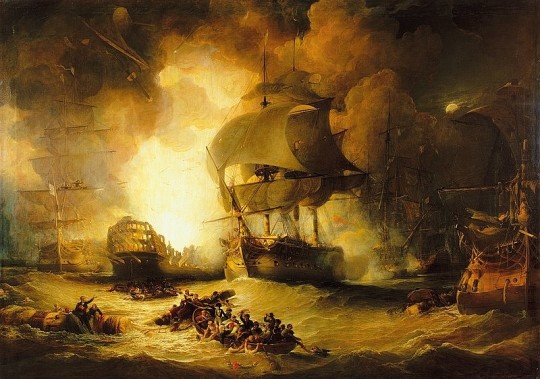
Battle of the Nile
The Battle of the Nile (1-2 August 1798), or the Battle of Aboukir Bay, saw a British fleet led by Rear-Admiral Sir Horatio Nelson (1758-1805) destroy a French fleet at Aboukir Bay near the Rosetta mouth of the Nile River. It was one of the most decisive naval battles of the French Revolutionary and Napoleonic Wars.
Continue reading...
39 notes
·
View notes
Text
A quick biographical sketch of Murat
This is my fifth post regarding the Marshals listed in an article about Napoleon’s ability to spot talent. The article is taken from the September 2019 issue of Historia magazine, bearing on its front page’s the title “Napoleon, les secrets d’un chef de guerre”.
After Berthier, Davout, Lannes, and Masséna, Murat is the next Marshal on the alphabetized list of the eight highlighted Marshals:
Murat, the man of the attack
If there ever was a marshal with a sense of panache, it is Murat, perhaps even too much so. On a battlefield, he was the one to draw all eyes. His garish uniforms even earned him some derision from Napoleon. But when on horseback leading a charge, he earned nothing but admiration. During the Prussian campaign in 1806, he vanquished everything in his path. At Eylau, a year later, at the head of more than 10,000 horsemen, he thwarted a vigorous Russian attack. Eight years earlier at the second battle of Aboukir in Egypt, he had captured the enemy leader almost single-handedly, wielding his sparkling oriental sword. Murat was the leading man, the one born for the first attack. A brilliant cavalryman, he was less adept at politics; he committed himself to a failed alliance with Austria in 1813. He was not at Waterloo. He was executed by firing squad at Pizzo in Italy on 13 October 1815, aged 48.
Murat was one of three Marshals whose absence was deeply detrimental at Waterloo; the other two were Davout and Berthier. Berthier, of course, was already dead; but it was Napoleon’s mistake to exclude Murat and Davout.
I don’t know enough about Murat to comment on his political abilities; were they lesser than those of his siblings? An aspect of his life I am curious about is how he was perceived by his Neapolitan subjects, and how he is perceived in contemporary Italy.
I do question how Napoleon treated Murat, if he wanted more compliance from his brother-in-law: it seems to me that Murat was more responsive to praise than to the kind of upbraiding he so regularly received from the Emperor.
27 notes
·
View notes
Text
Events 8.1 (before 1900)
30 BC – Octavian (later known as Augustus) enters Alexandria, Egypt, bringing it under the control of the Roman Republic.
AD 69 – Batavian rebellion: The Batavians in Germania Inferior (Netherlands) revolt under the leadership of Gaius Julius Civilis.
527 – Justinian I becomes the sole ruler of the Byzantine Empire.
607 – Ono no Imoko is dispatched as envoy to the Sui court in China (Traditional Japanese date: July 3, 607).
902 – Taormina, the last Byzantine stronghold in Sicily, is captured by the Aghlabid army, concluding the Muslim conquest of Sicily.
1203 – Isaac II Angelos, restored Byzantine Emperor, declares his son Alexios IV Angelos co-emperor after pressure from the forces of the Fourth Crusade.
1291 – The Old Swiss Confederacy is formed with the signature of the Federal Charter.
1469 – Louis XI of France founds the chivalric order called the Order of Saint Michael in Amboise.
1498 – Christopher Columbus becomes the first European to visit what is now Venezuela.
1571 – The Ottoman conquest of Cyprus is concluded, by the surrender of Famagusta.
1620 – Speedwell leaves Delfshaven to bring pilgrims to America by way of England.
1664 – Ottoman forces are defeated in the battle of Saint Gotthard by an Austrian army led by Raimondo Montecuccoli, resulting in the Peace of Vasvár.
1714 – George, Elector of Hanover, becomes King George I of Great Britain, marking the beginning of the Georgian era of British history.
1759 – Seven Years' War: The Battle of Minden, an allied Anglo-German army victory over the French. In Britain this was one of a number of events that constituted the Annus Mirabilis of 1759 and is celebrated as Minden Day by certain British Army regiments.
1774 – British scientist Joseph Priestley discovers oxygen gas, corroborating the prior discovery of this element by German-Swedish chemist Carl Wilhelm Scheele.
1798 – French Revolutionary Wars: Battle of the Nile (Battle of Aboukir Bay): Battle begins when a British fleet engages the French Revolutionary Navy fleet in an unusual night action.
1800 – The Acts of Union 1800 are passed which merge the Kingdom of Great Britain and the Kingdom of Ireland into the United Kingdom of Great Britain and Ireland.
1801 – First Barbary War: The American schooner USS Enterprise captures the Tripolitan polacca Tripoli in a single-ship action off the coast of modern-day Libya.
1834 – Slavery is abolished in the British Empire as the Slavery Abolition Act 1833 comes into force, although it remains legal in the possessions of the East India Company until the passage of the Indian Slavery Act, 1843.
1834 – Construction begins on the Wilberforce Monument in Kingston Upon Hull.
1842 – The Lombard Street riot erupts in Philadelphia, Pennsylvania, United States.
1849 – Joven Daniel wrecks at the coast of Araucanía, Chile, leading to allegations that local Mapuche tribes murdered survivors and kidnapped Elisa Bravo.
1855 – The first ascent of Monte Rosa, the second highest summit in the Alps.
1863 – At the suggestion of Senator J. V. Snellman and the order of Emperor Alexander II, full rights were promised to the Finnish language by a language regulation in the Grand Duchy of Finland.
1876 – Colorado is admitted as the 38th U.S. state.
1893 – Henry Perky patents shredded wheat.
1894 – The Empire of Japan and Qing China declare war on each other after a week of fighting over Korea, formally inaugurating the First Sino-Japanese War.
0 notes
Text
The Eighteenth Of June, 1815
Volume 2: Cosette; Book 1: Waterloo; Chapter 3: The Eighteenth Of June, 1815
Let us turn back,—that is one of the story-teller’s rights,—and put ourselves once more in the year 1815, and even a little earlier than the epoch when the action narrated in the first part of this book took place.
If it had not rained in the night between the 17th and the 18th of June, 1815, the fate of Europe would have been different. A few drops of water, more or less, decided the downfall of Napoleon. All that Providence required in order to make Waterloo the end of Austerlitz was a little more rain, and a cloud traversing the sky out of season sufficed to make a world crumble.
The battle of Waterloo could not be begun until half-past eleven o’clock, and that gave Blücher time to come up. Why? Because the ground was wet. The artillery had to wait until it became a little firmer before they could manœuvre.
Napoleon was an artillery officer, and felt the effects of this. The foundation of this wonderful captain was the man who, in the report to the Directory on Aboukir, said: Such a one of our balls killed six men. All his plans of battle were arranged for projectiles. The key to his victory was to make the artillery converge on one point. He treated the strategy of the hostile general like a citadel, and made a breach in it. He overwhelmed the weak point with grape-shot; he joined and dissolved battles with cannon. There was something of the sharpshooter in his genius. To beat in squares, to pulverize regiments, to break lines, to crush and disperse masses,—for him everything lay in this, to strike, strike, strike incessantly,—and he intrusted this task to the cannon-ball. A redoubtable method, and one which, united with genius, rendered this gloomy athlete of the pugilism of war invincible for the space of fifteen years.
On the 18th of June, 1815, he relied all the more on his artillery, because he had numbers on his side. Wellington had only one hundred and fifty-nine mouths of fire; Napoleon had two hundred and forty.
Suppose the soil dry, and the artillery capable of moving, the action would have begun at six o’clock in the morning. The battle would have been won and ended at two o’clock, three hours before the change of fortune in favor of the Prussians. What amount of blame attaches to Napoleon for the loss of this battle? Is the shipwreck due to the pilot?
Was it the evident physical decline of Napoleon that complicated this epoch by an inward diminution of force? Had the twenty years of war worn out the blade as it had worn the scabbard, the soul as well as the body? Did the veteran make himself disastrously felt in the leader? In a word, was this genius, as many historians of note have thought, suffering from an eclipse? Did he go into a frenzy in order to disguise his weakened powers from himself? Did he begin to waver under the delusion of a breath of adventure? Had he become—a grave matter in a general—unconscious of peril? Is there an age, in this class of material great men, who may be called the giants of action, when genius grows short-sighted? Old age has no hold on the geniuses of the ideal; for the Dantes and Michael Angelos to grow old is to grow in greatness; is it to grow less for the Hannibals and the Bonapartes? Had Napoleon lost the direct sense of victory? Had he reached the point where he could no longer recognize the reef, could no longer divine the snare, no longer discern the crumbling brink of abysses? Had he lost his power of scenting out catastrophes? He who had in former days known all the roads to triumph, and who, from the summit of his chariot of lightning, pointed them out with a sovereign finger, had he now reached that state of sinister amazement when he could lead his tumultuous legions harnessed to it, to the precipice? Was he seized at the age of forty-six with a supreme madness? Was that titanic charioteer of destiny no longer anything more than an immense dare-devil?
We do not think so.
His plan of battle was, by the confession of all, a masterpiece. To go straight to the centre of the Allies’ line, to make a breach in the enemy, to cut them in two, to drive the British half back on Hal, and the Prussian half on Tongres, to make two shattered fragments of Wellington and Blücher, to carry Mont-Saint-Jean, to seize Brussels, to hurl the German into the Rhine, and the Englishman into the sea. All this was contained in that battle, according to Napoleon. Afterwards people would see.
Of course, we do not here pretend to furnish a history of the battle of Waterloo; one of the scenes of the foundation of the story which we are relating is connected with this battle, but this history is not our subject; this history, moreover, has been finished, and finished in a masterly manner, from one point of view by Napoleon, and from another point of view by a whole pleiad of historians.7
As for us, we leave the historians at loggerheads; we are but a distant witness, a passer-by on the plain, a seeker bending over that soil all made of human flesh, taking appearances for realities, perchance; we have no right to oppose, in the name of science, a collection of facts which contain illusions, no doubt; we possess neither military practice nor strategic ability which authorize a system; in our opinion, a chain of accidents dominated the two leaders at Waterloo; and when it becomes a question of destiny, that mysterious culprit, we judge like that ingenious judge, the populace.
0 notes
Photo
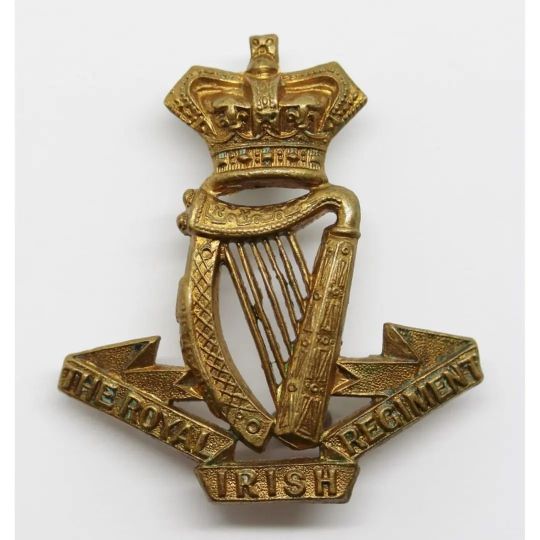
"13th March 1801- The Battle of Mandara was fought in Egypt. Having landed at Aboukir Bay a few days previously, Abercromby began to advance towards Alexandria. On the march he was confronted by a force of the French army at a line of sand hills near Mandara on the 12th of March. Abercromby deployed his force in three columns on the morning of the 13th and advanced on the French lines. The French advanced onto the plain to give battle, a mistake by the French commander who could only see two columns from his position. The 18th’s only action on the day occurred shortly after a French cavalry unit rode along the front of the British line without being fired upon because their green uniforms caused them to be mistaken for Hompesch's Cavalry, a unit on the British side. When the French Dragoons tried to ride through a gap in the line between the Royal Irish and their neighbours on their left flank, they were fired on by the Light Company of the 18th and then by the whole regiment. This stopped the Dragoons’ advance. #18thfoot #royalirishregiment #gr#18thfoot #royalirishregiment #greatwar #worldwar1 #ww1 #egypt https://www.irishgreatwarsociety.com/royalirishregiment.htm https://www.instagram.com/p/CpwwzHLNWyO/?igshid=NGJjMDIxMWI=
0 notes
Text
Cossacks european wars mutiny in tolousse

Battle of Trafalgar 21 October – Horatio Nelson defeats Villeneuve, signals "England expects every man to do his duty", Nelson killed.Battle of Schöngrabern – Pyotr Bagration commands Russian and Austrian forces against Murat and Napoleon.Battle of Ulm 16–19 October – Napoleon forces surrender of Austrian army under Baron von Leiberich.Battle of Elchingen 14 October – French army, under Marshal Michel Ney, defeats an Austrian army.Ulm Campaign 25 September – 20 October – Napoleonic Wars.Battle of Ivankovac 18 August – Serbian rebels defeated Ottoman army during the First Serbian Uprising.Battle of Derne 27 April – 13 May – United States victory during First Barbary War.Siege of Bharatpur (1805) 2 January – 22 February.Battle of Tabkin Kwatto - First decisive battle of Fulani War.Battle of Vizagapatam - French defeat British in Bay of Bengal.Siege of Delhi - Brits and Mughals hold Delhi.Battle of Farrukhabad 17 November – Lake defeats Maratha forces of Jaswant Rao Holkar.Second Battle of Sitka 1–7 October – In reprisal for the 1802 attack, Russian forces defeat the Tlingit in the last major armed conflict between Europeans and Alaska Natives.Second Battle of Tripoli Harbor October 1803 – September 1804 – Indecisive battle between United States and Barbary Pirates.Battle of Echmiadzin (1804) June – Russian forces forced to withdraw by Iranian forces during Russo-Persian War.Battle of Suriname 5 May – Battle between the Netherlands and Great Britain for the control of the Suriname colony.Castle Hill convict rebellion 5 March – Irish convict uprising in the New South Wales colony.Battle of Ganja (1804) 22 November 1803 – 15 January 1804 – Battle between Russian Empire and Persian Empire for the control of Ganja citadel.Second Ottoman invasion of Mani - Ottomans fail to conquer Mani a second time.Battle of Argaon 28 November – Wellesley defeats Sindhia.Battle of Vertières 18 November – Haitians defeat French in last battle of war of independence.Battle of Laswari 1 November – Lake defeats Marathas near Agra.Battle of Assaye 23 September – English under Wellesley defeat Marathas under Daulat Scindia in Deccan.Battle of Delhi 11 September – British forces under Gerard Lake defeat Maratha forces led by French officer Louis Bourquin.Blockade of Saint-Domingue 18 June – 6 December.Battle of Poona - precursor to the Second Anglo-Maratha War.First Battle of Sitka 20 June – Tlingit warriors massacre Russians and Aleut workers, and carry off the women and children.Battle of Ravine-à-Couleuvres 23 February.Capitulation of Alexandria 30 August - End of the French campaign in Egypt and Syria.Battle of Mahé 19 August - British victory.Raids on Boulogne 4-16 August - French victory.Second Battle of Algeciras 12 July – British naval victory over French, Spanish.First Battle of Algeciras 6 July – British naval defeat by French.Action of 24 June 1801 - French victory.Battle of Copenhagen 2 April – Nelson defeats Danish fleet.Battle of Alexandria 21 March - British victory.Battle of Aboukir 8 March – British-Turkish army under Sir Ralph Abernathy defeats French Army of Egypt under Jacques de Menou.Action of 19 February 1801 - British victory.

0 notes
Text

H.M.S. Culloden, under Captain Troubridge's command, stranded on a shoal off Aboukir Island as the battle of the Nile (1798) rages in the distance ahead of her, by William Anderson (1757-1837)
85 notes
·
View notes
Text
ON THIS DATE !
The Battle of the Nile
Also known as the Battle of Aboukir Bay. It was a major naval battle fought between the British Royal Navy and the Navy of the French Republic on the Mediterranean coast off the Nile Delta of Egypt from the 1st to the 3rd of August 1798
0 notes
Text
“A Turk... did me the kindness of sending a pistol shot through my jaw”
25 July 1799--The Battle of Aboukir
On the 14th of July, 1799, the Turkish army, commanded by Mustafa Pasha, had established two fortified defensive lines along Aboukir Bay, with the intention of eventually using this beachhead as a launching point to drive towards Alexandria and, ultimately, driving the French out of Egypt. Napoleon Bonaparte quickly took the offensive, amassing slightly under 8,000 infantry and around 1,000 cavalry, to face Pasha's force of 18,000 (though the number of men Pasha actually had fit for duty may have been less than half that number).
Bonaparte's initial attack succeeded in destroying the first of Pasha’s defensive lines by having his infantry target the center while Murat’s cavalry targeted both flanks. In the second stage of the battle, Murat led his cavalry in a rapid charge that took the Turks completely by surprise; Murat himself encountered Mustafa Pasha and demanded his surrender.
Pasha shot Murat through the jaw with his pistol; Murat, in turn, hacked off two of Pasha's fingers with his saber and took him prisoner with the help of two hussars.

[Murat vs. Mustafa Pasha at Aboukir, by Jacques Onfroy de Bréville]
The French lost only a couple of hundred dead and around 600 wounded, compared to around 2000 Turks killed on the battlefield and another 4,000 drowned as they tried to flee the French troops and swim out to the Turkish and British vessels anchored nearby.
Bonaparte, inquiring about the severity of Murat's wound, and being told that his former aide-de-camp's tongue had been preserved due to his mouth being open when he was shot, quipped that it was the first time Murat had opened it to good purpose. Good-natured ribbing aside, he was highly pleased with Murat's conduct and had him promoted, writing to the Directory that "The winning of the battle, which will have so much influence on the glory of the Republic, is mainly due to General Murat; I request for this general the grade of general of division, his brigade of cavalry has done the impossible."
Murat, recuperating in the same hospital as the wounded General Lannes, and with his friend Bessières at his bedside, wrote a very-much-in-character letter to his father three days later, first assuring him that "I am absolutely out of danger." He then continued:
If in Europe, some beauty may, after one year of absence, have still conserved her sensitive heart for me, the nature of my wound must have a terrible impact on her constancy. Do not be alarmed, do not carry false judgments, I still have all my limbs: you will know that a Turk, and the Turks are not ordinarily very gallant, did me the kindness of sending a pistol shot through my jaw. It's truly a unique and extremely fortunate blow, because the ball that entered from one side, beside the ear, left directly from the other side, neither offending the jaw nor tongue nor breaking any teeth. I am assured that I will by no means be disfigured. So therefore tell those beauties, if there are any, that Murat, no longer being so handsome, will be no less brave in love.
Murat grew out his sideburns afterwards, primarily to conceal the scar that he would carry for the rest of his life.
(The quotation from Napoleon and letter excerpt from Murat are both translated from Lettres et Documents Pour Servir à l'Histoire de Joachim Murat, Vol. 1.)
#Joachim Murat#Napoleon#Napoleon Bonaparte#Battle of Aboukir#18th century#history#military history#Napoleonic wars#letters#translations#today in history
70 notes
·
View notes
Text

Le Général Murat qui commandait, irrité par l'audace des Turcs sortis de leurs retranchemens pour attaquer les Français, se met à la tête de la Cavalerie, enfonce les Escadrons ennemis, leur coupe toute retraite et en fait un horrible carnage.
* * *
General Murat, who was in command, irritated by the audacity of the Turks who had come out of their entrenchments to attack the French, placed himself at the head of the Cavalry, broke down the enemy squadrons, cut off their retreat and created horrible carnage among them. Source

#Murat at Aboukir#Battle of Aboukir#Egyptian campaign#don't irritate Murat it results in horrible carnage#he doesn't look irritated but he is
18 notes
·
View notes
Text
Murat in Aboukir
Joachim Murat was headstrong but an outstanding horseman, impetuous and valiant, who came several times to Napoleon's rescue.
While he is "still" only a brigadier general, Bonaparte takes him with him to Egypt. Murat distinguished himself there on several occasions and more particularly at the famous battle of Aboukir which will remain a striking victory of the French forces over the Ottoman Empire (not to be confused with the naval defeat of Aboukir, a French disaster which wiped out for a long time France's attempt to control the seas).
We are in July 1799 and driven by Great Britain, the Ottoman Empire declares war on France. They must attack the French expeditionary force in Egypt with two armies: the first will be transported by sea by the British fleet directly to Egypt while the second is assembled in the north of Syria. The British fleet then unleashes on the Aboukir peninsula 18,000 Turks with at their head Mustafa Pasha who immediately takes possession of the fort by driving out the small French detachment that was there. The Turks then install themselves on the defensive and seem to be impregnable, but a singular event would rock everything. Leaving the fort, the Pasha's men begin to cut off the heads of the dead French soldiers, which has the effect of enraging the French troops, who without waiting for orders, rush into the enemy ranks. Murat succeeds in bypassing enemy lines with his cavalry, cutting off any retreat for Mustapha Pasha whom he captures in single combat.

Detail from Le Général Murat à la bataille d’Aboukir, by Antoine-Jean Gros, 1806
The pasha is the first to shoot at the general who is hit in the face: the ball crosses his mouth, cuts off his glottis, bounces off one of his vertebrae and will eventually lodge in his ribs. The French centaur reacts and cuts off three fingers while flinging at him:
Si tu refais ça à mes soldats, je te jure par Allah, je te couperai d’autres choses plus importantes.
(If you ever do this again to my soldiers, I swear to you by Allah, I will cut some other, more important things).
The Ottoman army is destroyed and drowns while trying to regain its ships offshore. During several tides, the shore will remain covered with Turkish turbans.
Thanks to his daring maneuver, Murat is appointed general of division on the battlefield itself. His mouth injury fortunately spares his tongue since at the time of impact his mouth was open. This situation will make General Bonaparte say:
C’est la première fois qu’il l’a ouverte à propos!
(It was the first time he opened it appropriately!)
Found on https://les-apn-belgique.webnode.fr/news/echappee-belle/
14 notes
·
View notes